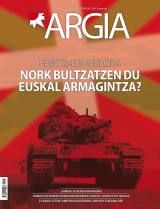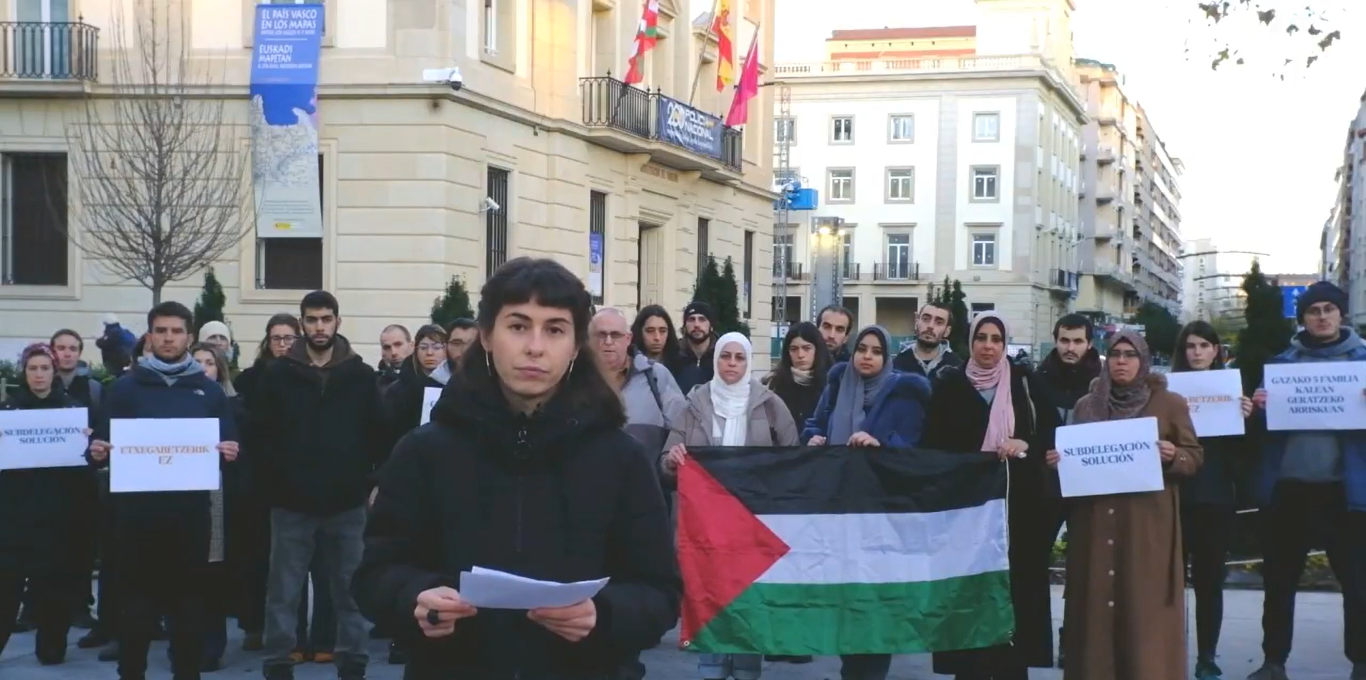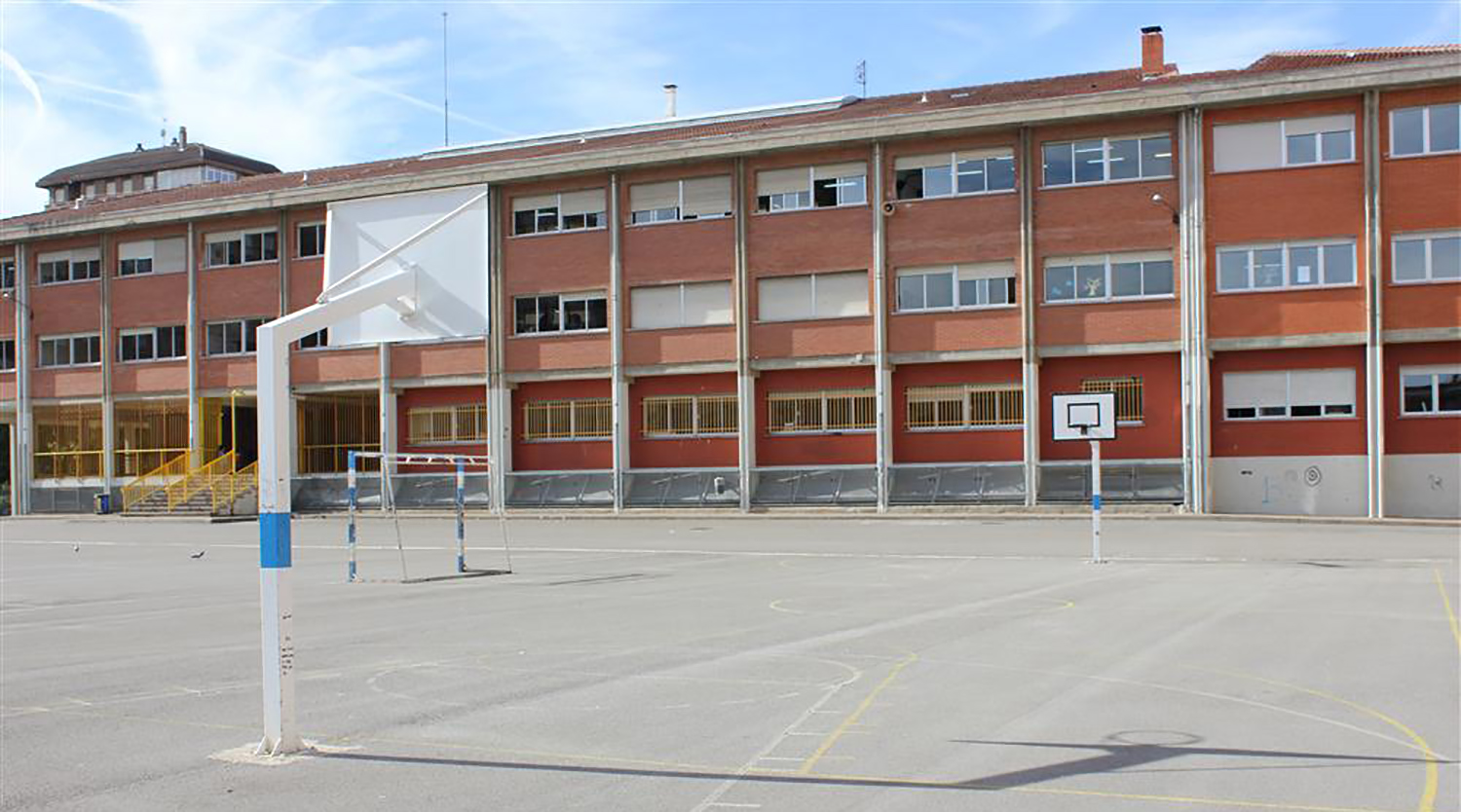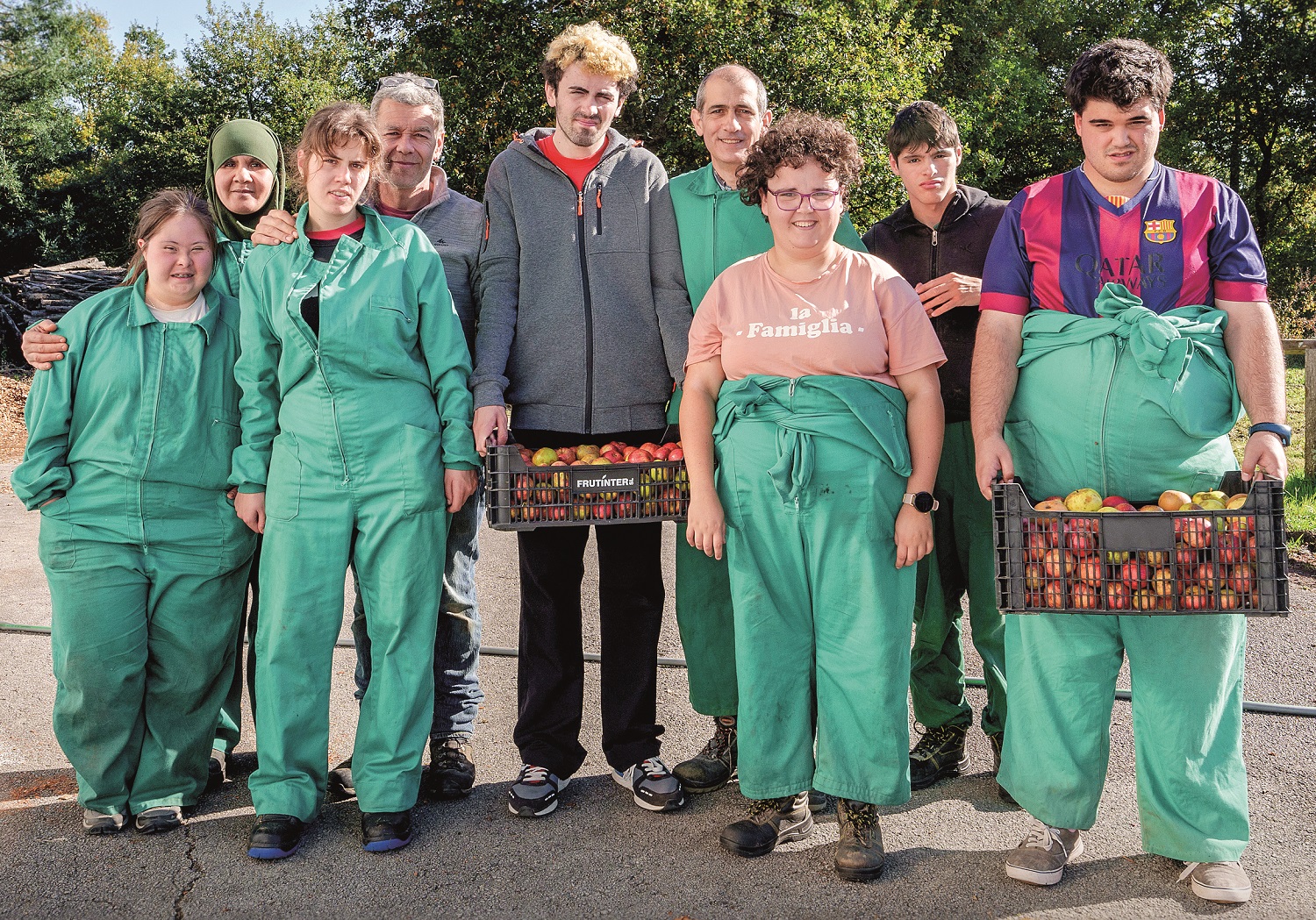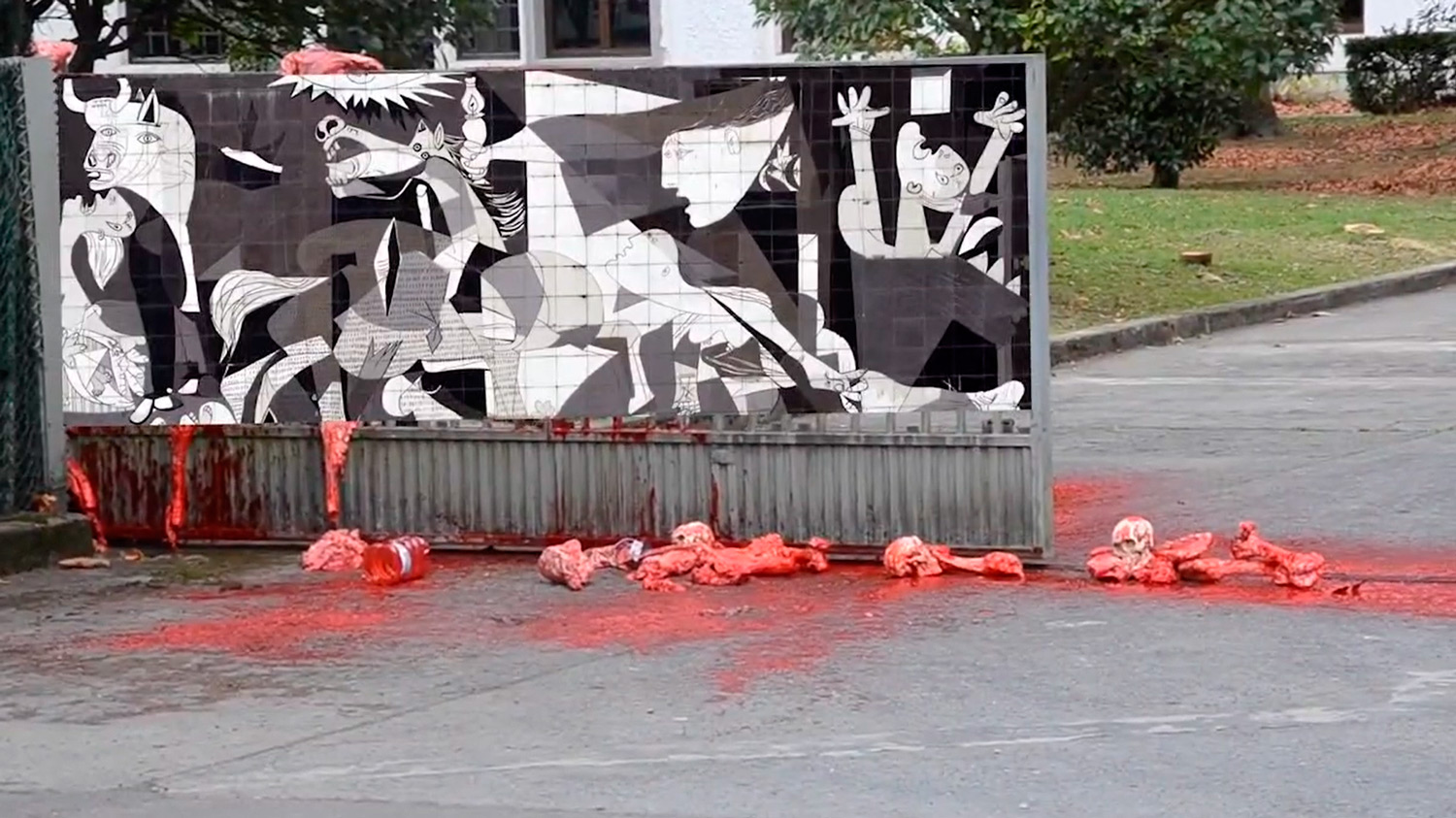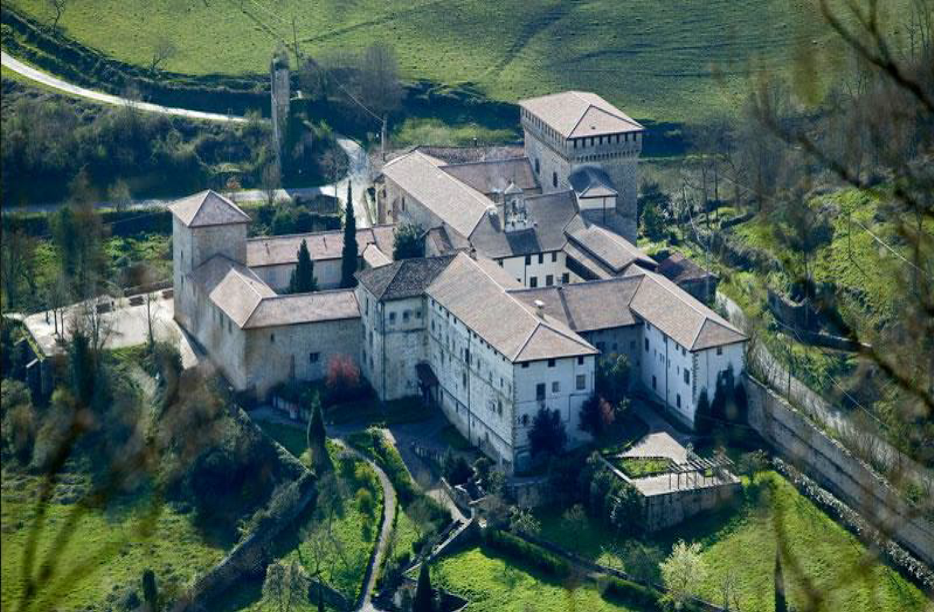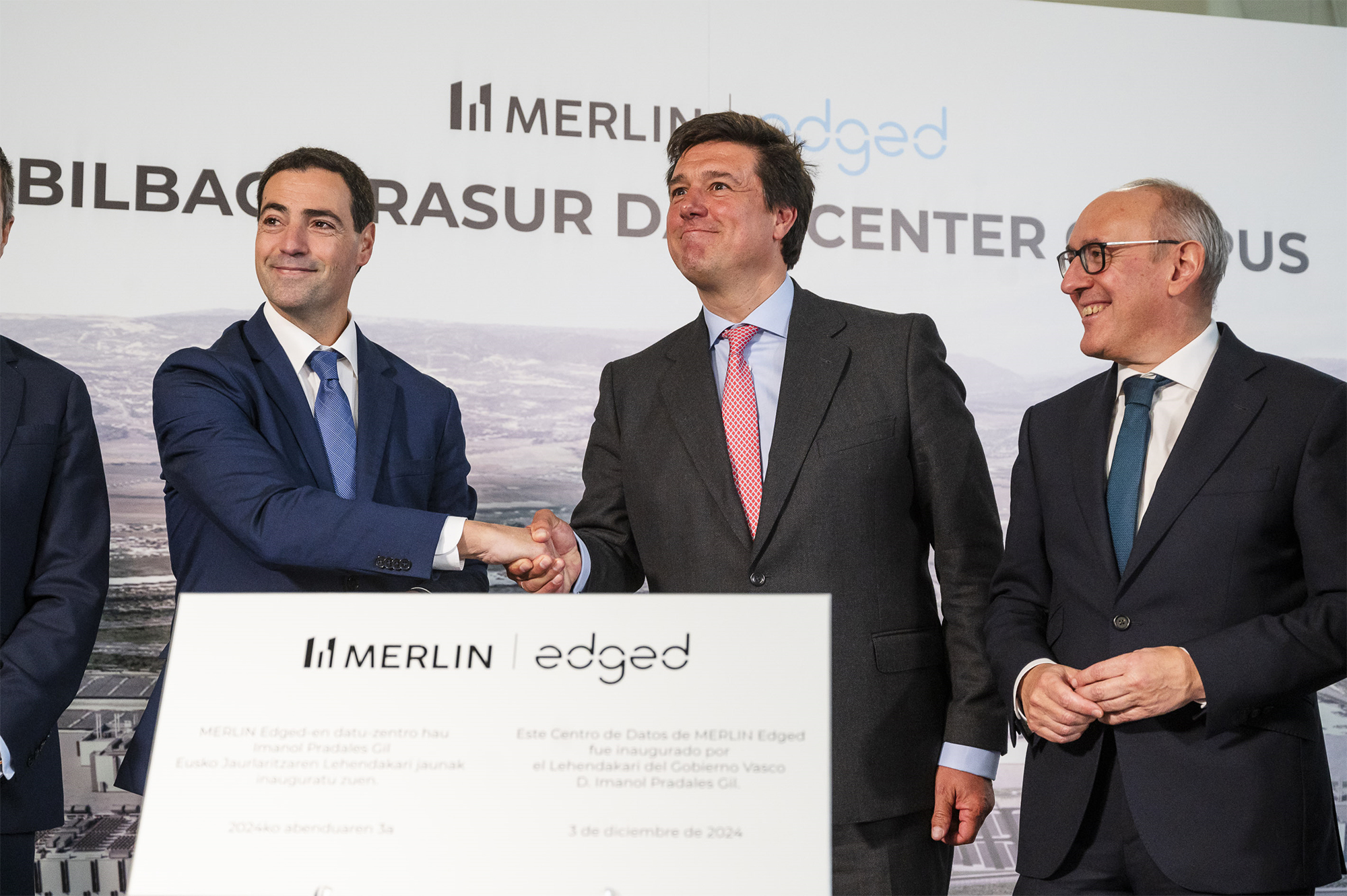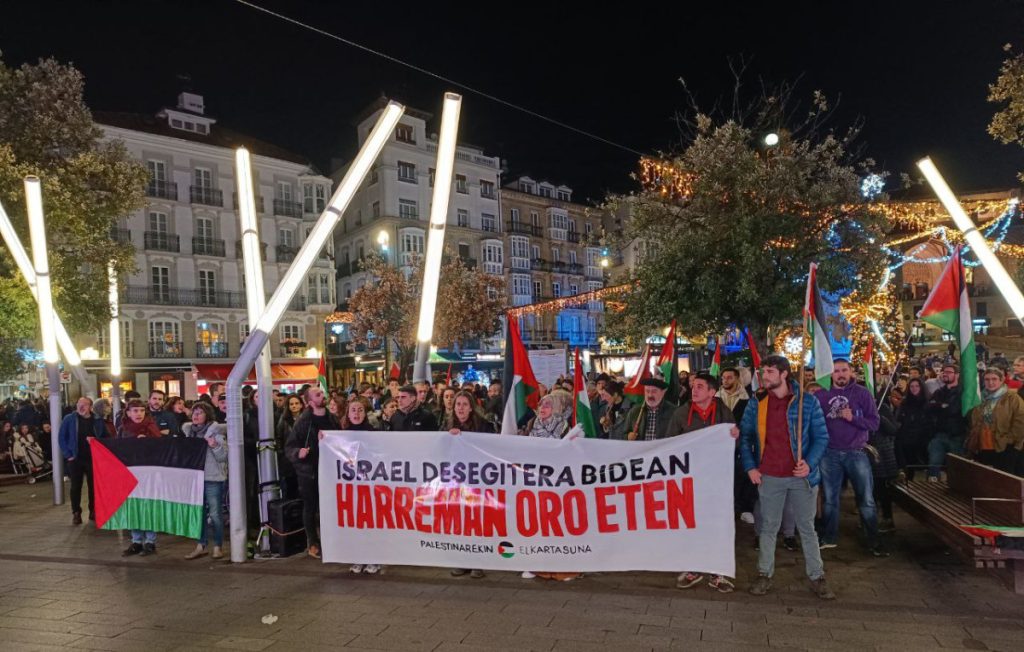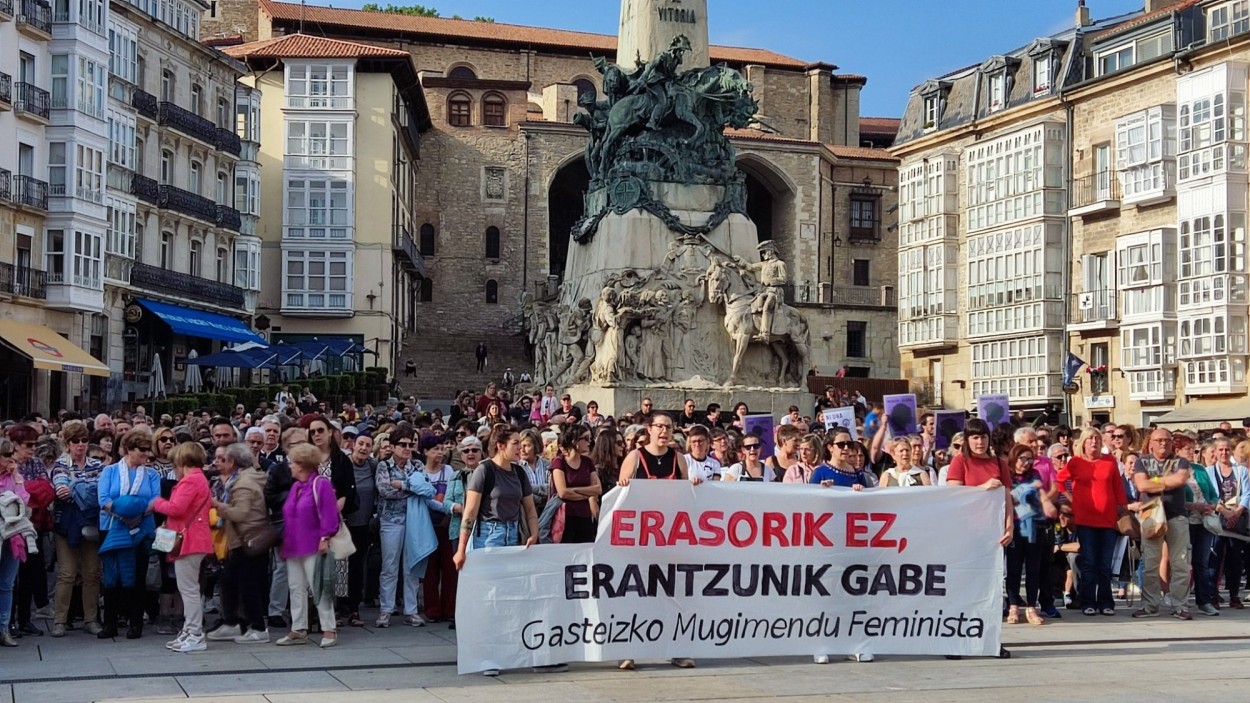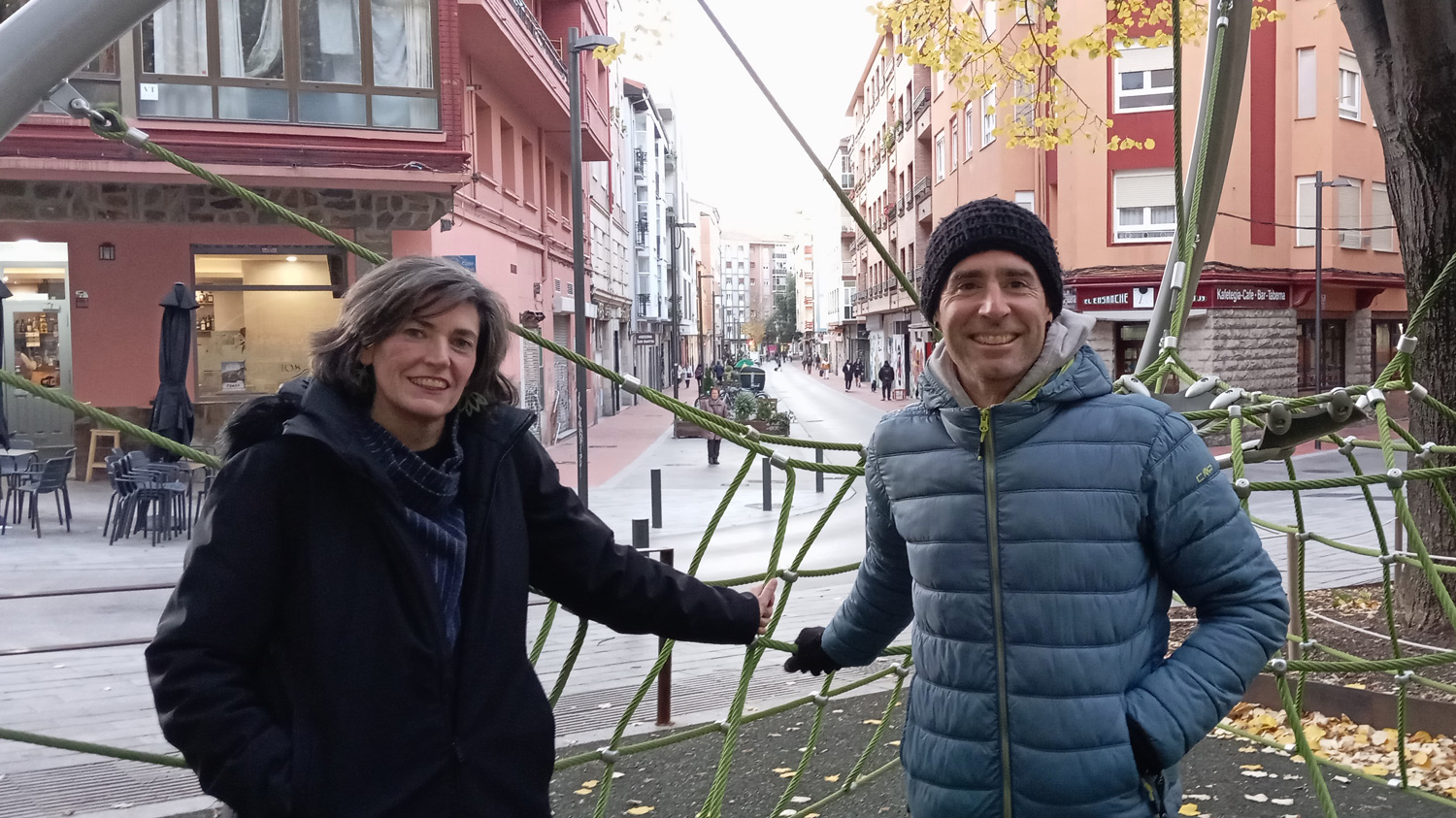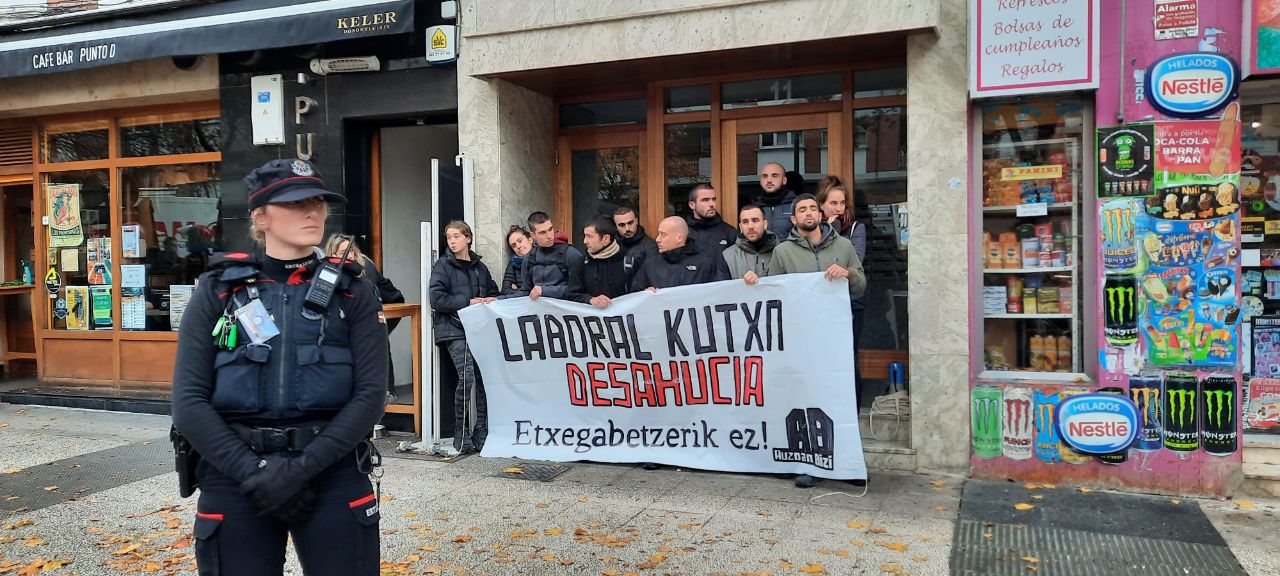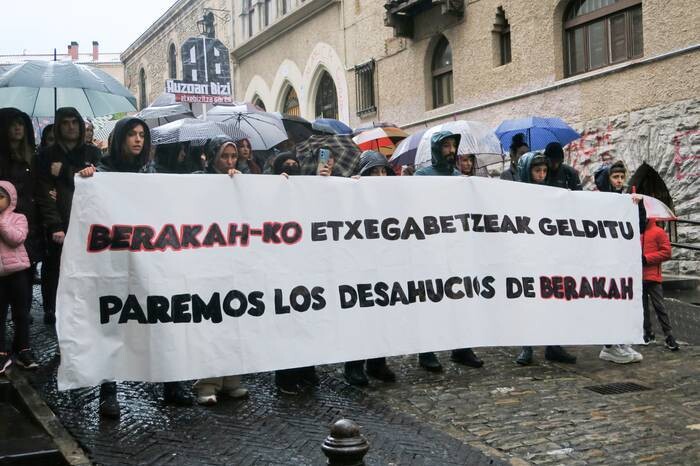"With the contempt we were once called potatoes, we now proudly say it."
- This year ARGIA Eguna will land in Vitoria-Gasteiz on 7 October. It's the first time we've done it in a capital city. It is no coincidence that Álava was elected. The 8th Castilian speaking territory where nothing happens. That's what old biases say. And, as usual, they serve only to hide the truth. Our Alavese accomplices know this very well. We spoke with Igor Goikolea and Maialen Kortabarria (Hala Bedi) and Aritz Martínez de Luna (Alea).
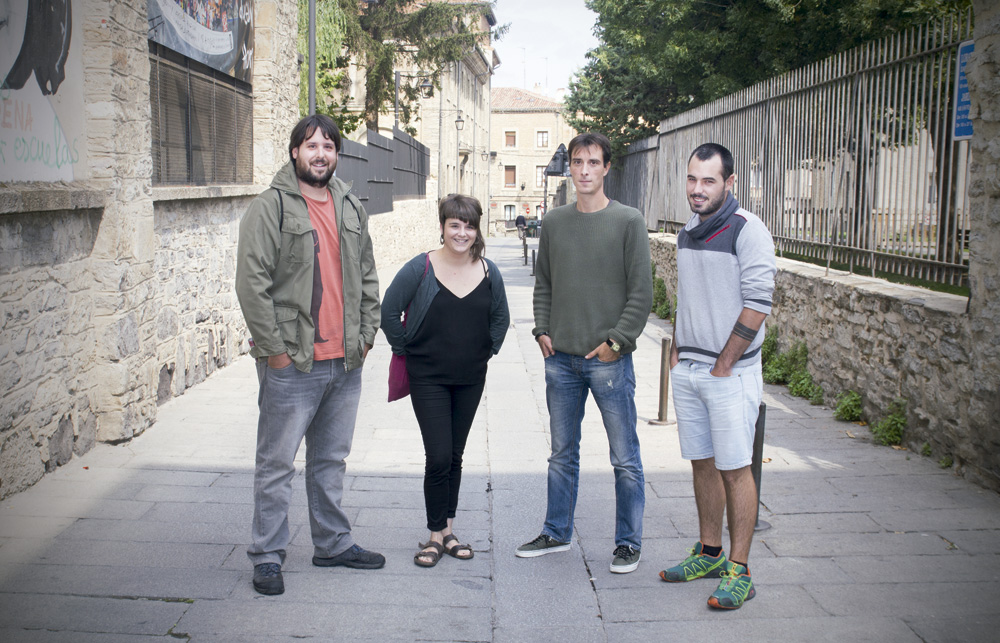
Why do Álava and Vitoria-Gasteiz have so little media presence?
Aritz Martinez de Luna: Most of the media outside Álava do not have a presence here, it is difficult to follow it. They deal with issues of great impact or, if not, – the joke that we usually use in the drafting – when it comes to “exotic content”: Confusing Treviño, La Rioja, Euskera and I do not know what it will be like. What happens to us on a day-to-day basis usually has a little echo out of here.
IGOR Goikolea: They focus mainly on Vitoria-Gasteiz and the scarce resources they have are allocated to Parliament. In Álava, 10% of the population of Euskal Herria live and 80% of the population of Alavesa is in Vitoria-Gasteiz. This is not the case in other countries.
Maialen Kortabarria: Álava and Vitoria-Gasteiz have been forgotten in the Basque Country, especially from the point of view of the popular movement. For a few years now, Álava and Vitoria-Gasteiz have been very alive. However, many media have not yet adapted to the current situation. The interesting things that happen here many times are here.
I. Goikolea: That's changing. The accounts here are coming out more often and, in total humility, Alea and Hala Bedi have a lot to do with it. The ones that completely marked the first agenda were others. Our collaboration with other media in Euskal Herria, such as ARGIA, has helped a lot. Our formal and informal relationship has been very positive and analytical.
What do they look like about the communication landscape?
I. Goikolea: With a population of 300,000 inhabitants, there are very interesting communication projects in Álava. In addition to Alea and Hala Bedi, for example, they have a very powerful project in the region of Aiaraldea, which often goes a long way. Both Hala Bedi, Alea, Aiaraldea, etc., to a large extent we are inventing it: constantly showing the ability to adapt to new situations, experimenting with new tools, putting strength on the internet and social networks, bringing content abroad…
A. Martínez de Luna: The larger media have more rigid structures, they find it harder to change. The traditional print media in Álava, El Correo, Diario de Noticias de Alava and others have the same approach and format as 10 or 20 years ago. We, with all our shortcomings, are more willing to take advantage of the new opportunities.
I. Goikolea: That has been possible because we are brave. The grain emerges because you've been brave. Being small, changes become easier. We want, it's possible, let's do it. It's over.
What have been the major contributions of Hala Bedi and Alea?
A. Martínez de Luna: We have responded to a need with Alea: Information of Álava in Basque and elaborated by the Alaveses. This project emerged from the GEU Euskara and GEU association for 25 years promoting the use and normalization of Euskera. So that is our goal.
I. Goikolea: Hala Bedi turns 35 in 2018. When we were born we were not born yet, but since then one thing has not changed: for many generations Hala Bedi has been a place to experiment, a place of freedom. A place to do and say what they wanted the moment they wanted it. In addition to opening the floor, it has given many agents the opportunity to be trained in communication. Radio has served to unite and meet different people.
M. Cormoran: Since Hala Bedi is only on the waves, we have experienced the process of becoming a means of communication that also exists on the Internet, on videos and on social networks. We have continued to give voice to actors, collectives and movements that have no voice, but now by more means. Once on the radio there was no one-off follow-up and we are now also in a position to do so. This leap has made a great contribution to the grass-roots movement.
“The Alaveses have empowered us to create new things. The creation of groups is very simple. We have a tendency from the small, from the local”
Vitoria-Gasteiz offers a lively city with many movements and bounds. Is that how they live inside it?
A. Martínez de Luna: Yes, and you notice. It has always been said that Vitoria was the capital of the small bourgeoisie and that nothing was happening. We have been removing the shame above and, little by little, more movements have appeared. Before, they called us with contempt for potatoes. Today I say proud that I am a paternal.
I. Goikolea: The fact that there are groups here that in many other places could not be seen well has helped. It is very easy to bring together people from different ideologies in Vitoria-Gasteiz (Gora Gasteiz, Hala Bedi, Gaztetxe…).
A. Martínez de Luna: The main stimulus of social movements is usually young people and in Vitoria-Gasteiz the university has had a great influence. People from all over the Basque Country come to study and that has increased that diversity. As Kike Amonarriz points out, Vitoria-Gasteiz will be the cradle of a dialect future, as this is where the most poetic people congregate.
M. Cormoran: Vitoria-Gasteiz is alive. The Alaveses have had a process of empowerment. We, without dialects, speak in Basque and that is why we are no less than anyone. All the Alaveses are overflowing these complexes.
I. Goikolea: We've been empowered to create new things. The creation of groups is very simple. We have a tendency from the small, the local. Without waiting for what they say “from above” or “from the big ones”, if you see the need, join and stop. And many times it's going through institutions. The manifestation of June 3 in Errekaleor may be a reflection of this, and the whole popular movement told the institutions “we are also who, we also work every day”.
After four long years of Javier Maroto’s term of office, there has been a change in the City Hall in this legislature.
A. Martínez de Luna: Alea was created in January 2015 and the change took place in June. In this small section we did not have a bad relationship with pp. I would say that their policy was “to give these what they are asking for and so they will leave us at peace.” The relationship with the new Government is closer. There are fewer association problems.
This change was necessary. If the pp had continued in the government, the risk would have been that Maroto would have stayed in another 20 years. In such cases, the person who receives the votes becomes a person rather than a party. In this sense, change is not ideal, but it is positive.
The rebirth of the popular movement mentioned above is closely related to the attitude of the previous government. That's the ppp contribution to Vitoria-Gasteiz.
"The rebirth of the popular movement is closely linked to the attitude of the Maroto government. That is the PP’s contribution to Vitoria”
Maroto has never talked about Hala Bedi and Uraran had a program in his youth for a year.
M. Cormoran: It's true, but since he's a mayor, he doesn't really like the radio. As far as trimmers are concerned, it has become clear.
I. Goikolea: He's spoken three times on the radio since he's mayor, and other members of the government as well. However, I have not noticed any major changes.
If there has been any significant change, the change has been in the Basque sphere. Nowadays, after Donostia-San Sebastián, Vitoria-Gasteiz is the capital of the Basque Country the most Euskaldun in terms of its use.
A. Martínez de Luna: When people are told, they don't believe it. When I was a kid, when I heard a word in Euskera, I turned to see who I was, surprised. Today, however, you can listen to people in Euskera anywhere.
M. Cormoran: It is clear that our recipients are increasingly Euskaldunes. The sessions in Basque are becoming more and more well known. The Spanish magazine Solta la Olla continues to dominate, but the Basque magazine Araba Euskaraz is gaining more and more strength.
I. Goikolea: When the radio was created it was in Spanish and today half of the sessions of Hala Bedi are in Basque. Within the radio, more and more Basque people are listening. In addition to Basque and Spanish, we also have sessions in Arabic, English and Galician.
M. Cormoran: Hala Bedi Bi is a sample of the Euskaldunization process in Vitoria-Gasteiz. An entire radio was needed in Basque in Álava. It was a very brave bet. Hala Bedi Bi has not reached the level of the first chain, but if it is maintained, it can ever arrive. The point is that being an important part of Hala Bedi Bat's programming in Euskera, Euskaldunes do not have to go to Hala Bedi Bira to listen to Euskera. There are different opinions about the relationship between the two chains.
In many local media, the agenda and sport are present so as not to generate friction in a diverse Basque community of opinions and values. Fortunately, it doesn't seem like that happened to you.
A. Martínez de Luna: Yes, we have readers and subscribers of different typologies, so we know that sometimes our content will not like everyone. And it's normal. We work to be the most open media possible. We will not marry anyone and try to give everyone a voice, whenever possible.
The easiest thing for us would be to deal with sports issues, we all go with Alavés and Baskonia, and we all love them. Well, about them, we've published four or five news stories a year. We have worked sport from other angles: inclusiveness, parity, etc. We're not looking for a topic that we all like. That is not interesting and, from the journalistic point of view, it is not fruitful in the long term either.
I. Goikolea: We are also being criticised on one side and the other. But something is doing well, because most agents and people express interest and willingness to appear in Alea or Hala Bedi.
What are your main challenges?
A. Martínez de Luna: We cannot simply set the project in motion and be economically viable. If that is the approach, it will end in five years’ time. We have to keep growing, getting rid of the complexes and reaching as many readers as possible to be a referent.
I. Goikolea: We have to grow constantly adapting, creating new things. We have started a process. It consists of five topics: Hala Bedi Bat, Hala Bedi Bi, multimedia, functioning and internal feminist process.
M. Cormoran: I see two main challenges. On the one hand, the process we are conducting in the short term is as participative as possible to redefine and strengthen Hala Bedi. On the other hand, we should contribute to the communicative empowerment of this broad movement of Vitoria. Many movements have a great dependence, due to their communication deficiencies. We can help Hala Bedi and Aleak and that is why, for example, we have organised Izan Media workshops in September.
I. Goikolea: We have to help move the agenda of the grass-roots movement to the front line, to increase everyone’s capacity for influence.
A. Martínez de Luna: We are very grateful for the cooperation we have between the media, with Hala Bedi and some local media. There is no competition between us. We work to make the content as widely spread as possible, and that's second order. It's for the good of everyone.
Palestinarekin Elkartasunak "sionistekin harreman oro etetera" deitu du. Kanpaina bat jarri dute abian Euskal Herriak Israelgo estatu terroristaren bizirautea bermatzen duten harreman militar, diplomatiko eta kulturalak seinalatu eta hauen etetea exijitzeko. Pasa den... [+]
Andoni Urrestarazu Landazabal was born in the village of Araia on 16 July 1902 and died in Vitoria on 21 November 1993. It is now 31 years old and I think it is time to recognize his name and be, because the legacy he left is not well known. Umandi used the name of a mountain in... [+]









